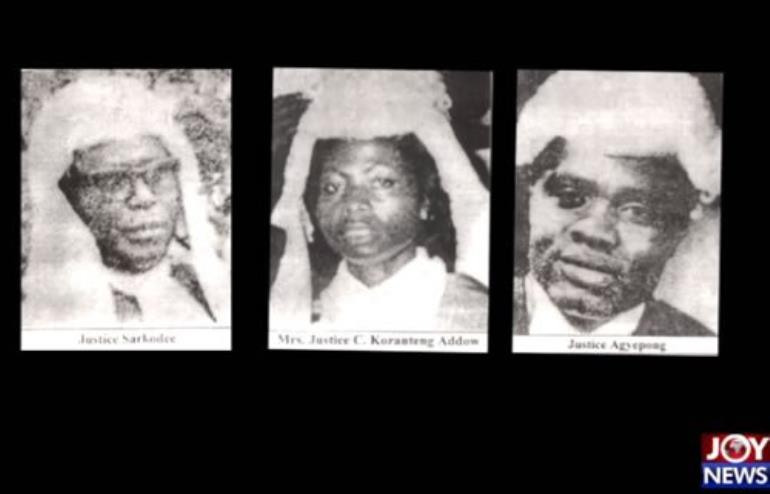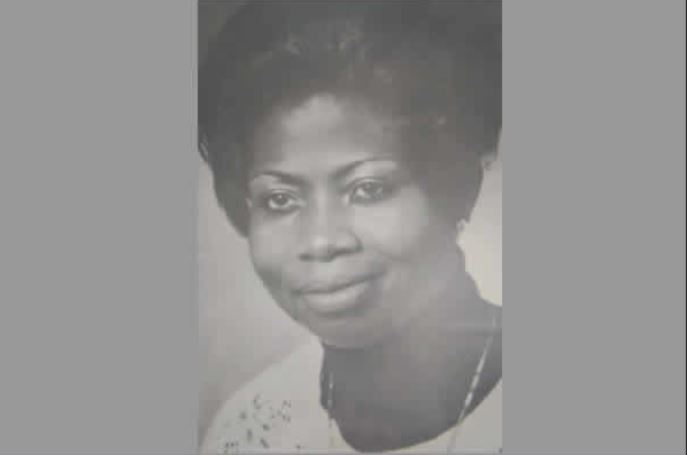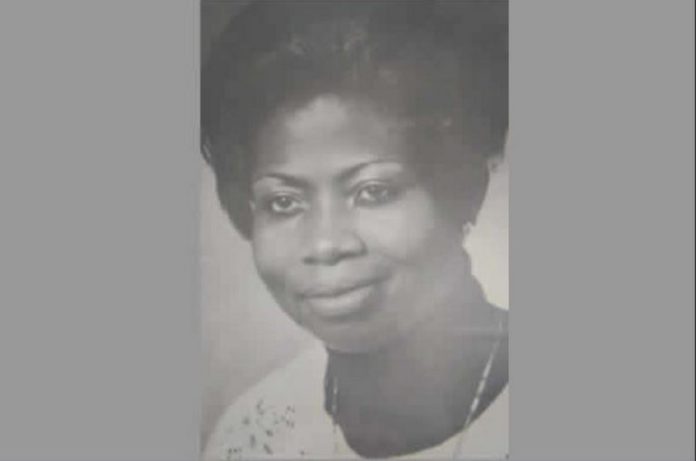Justice Cecilia Koranteng Addow is one of three Justices immortalised by Ghana’s Judiciary. On the night of June 30, 1982, Mrs Addo who was nursing a child, Justice Poku Sarkodie and Justice Kwadwo Adjei Agyapong as well as a retired military officer were abducted from their homes. Some individuals were indicted for the crime by the Provisional National Defence Council’s (PNDC) Special Investigation Board that probed the killings. They are Tony Tekpor, Dzandu, Hekli and Joachim Amartey Kwei. They were executed but one L/Cpl Amedeka still remains at large.
Nearly four decades on, the nation is yet to move from this painful past. A recent JoyNews documentary under the broad title “Crimes that shook the nation” brought this to the fore. The first part titled “ Who Killed the Judges” ignited the age-long belief of key actors of the era and relatives of the deceased judges that the real killers were never brought to book. While some condemned the good move by the media organization to document history, others called for the nation to simply forget its bloody past.

It will be difficult for the nation to ever move on; at least for as long as the monument erected in honour of the fallen justices continues to stand at the compound of Ghana’s Apex court-The Supreme Court. In this edition of Blast From The Past, I focus my lens on one judgement of Justice Addow that showed her confidence and temerity to stand and stick to her convictions.
The case is that of Republic v. Director of Prisons and Another; Ex Parte Shackleford. The decision was delivered 22 months before her painful death. The brief facts of the case are that Shackleford, a businessman was requested by a Ghana Broadcasting Corporation radio announcement to report at the Air force station four days after the June 4 coup of 1979. He was detained and having not been released he filed a writ of habeas corpus through his wife Elizabeth Shackleford inquiring into the reasons for his detention and asking for an order for his release.
He was ably represented by former Attorney General Bernard Edward Kwaw-Swanzy who had moved into private practice. He was joined by the current President of Ghana, Nana Akufo-Addo while Miss Asare Korang, a Senior State Attorney defended the Republic. While Mr Kwaw-Swanzy argued that the detention was illegal, the Republic responded that he had been detained by virtue of a warrant of commitment, dated 8th June 1979, numbered as A.F.R.C 83 allegedly issued by the dissolved special court set up by the AFRC. His crime was stated as selling goods above controlled price with a three-year jail term handed him. This warrant bore the signature of a person whose name could not be identified. What baffled the court was that the businessman in his sworn affidavit insisted he had never appeared before any court for the said offence. His lawyers also pointed out that the court could not have even been in existence at that time. They maintained Mr Shackleford was only informed he had been convicted while at the Usher Fort Prisons on 23 October 1979.
The businessman alleged that during his interrogation that took place at various locations including the Presidential retreat Peduase lodge, he was abused with questions asked about businesses involving the then-deceased former Head of State I. K Acheampong.

Justice Addow ruled in favour of the businessman holding that there was no justification for the detention directing his release. She ended her judgment by quoting the opening words of Lord Halsbury L.C. in his speech in the case of Cox v. Hakes (1890) 15 App. Cas. 506 at p. 514, H.L.:
“For a period extending as far back as our legal history, the writ of habeas corpus has been regarded as one of the most important safeguards of the liberty of the subject. If upon the return to that writ it was adjudged that no legal ground was made to appear justifying detention, the consequence was immediate release from custody.”
Read the full judgment below:
Source: Joy News | Joseph Ackah-Blay

